Publications
Explore our publications by our team of experts within the DDP network. Our publications advance knowledge and contribute to deep decarbonization from the perspectives of our in-country experts.
- Other
- Technical paper
- 2015

- Cross country
DDPP – Handbook
This technical paper presents guidance on how to conduct 2050 pathways analyses. It suggests criteria, principles and building blocks for a successful development of pathways, as well as selected illustrations. It is intended to be read together with: Why Develop 2050 Pathways?
- Henri Waisman (IDDRI)Jim Williams (SDSN)
- DDP-Project
- Synthesis
- 2015
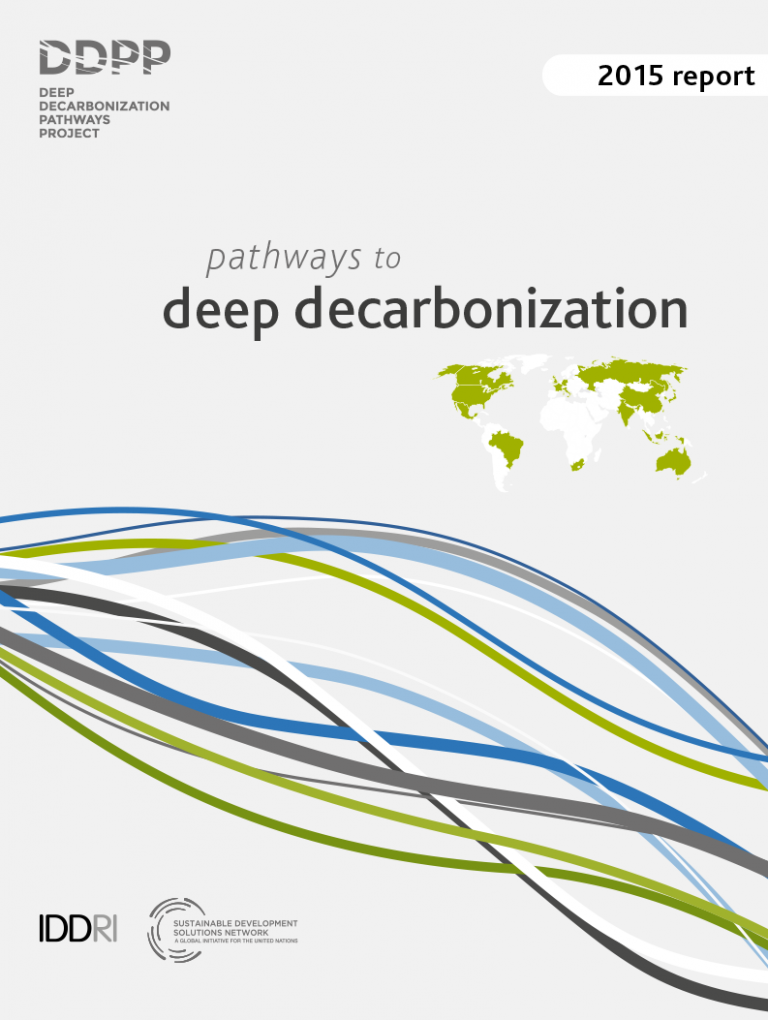
- Australia, Brazil, Canada, China, France, Germany, India, Indonesia, Italy, Japan, Mexico, Russia, South Africa, South Korea, UK, United Kingdom, USA
DDPP – 16 countries – Synthesis
The DDPP issued a report on the first phase of its work, preliminary findings on technically feasible pathways, at the UN Climate Summit in September 2014, at the invitation of Secretary General Ban Ki-moon. This report summarized each country team’s initial research. In the fall of 2015, all 16 teams published stand-alone reports describing in greater detail their research into national DDPs. This 2015 Synthesis Report provides a cross-cutting analysis of the aggregate results, complementing the executive summary published in September 2015.
- DDPP Consortium
- DDP-Project
- Report
- 2015
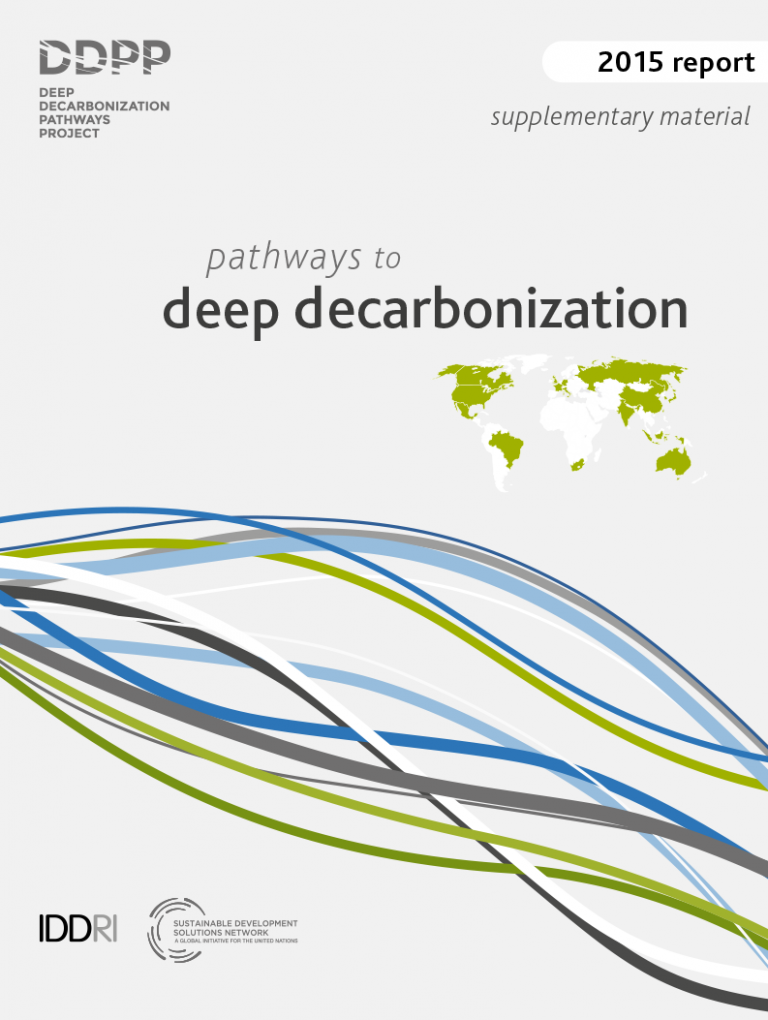
- Australia, Brazil, Canada, China, France, Germany, India, Indonesia, Italy, Japan, Mexico, Russia, South Africa, South Korea, UK, United Kingdom, USA
DDPP – 16 countries – Supplementary Material
This supplementary material contains case studies presenting specific aspects of the DDPP country pathways. They illustrate and complement the cross-cutting analysis included in the 2015 DDPP synthesis report.
- DDPP Consortium
- DDP-Project
- Summary
- 2015
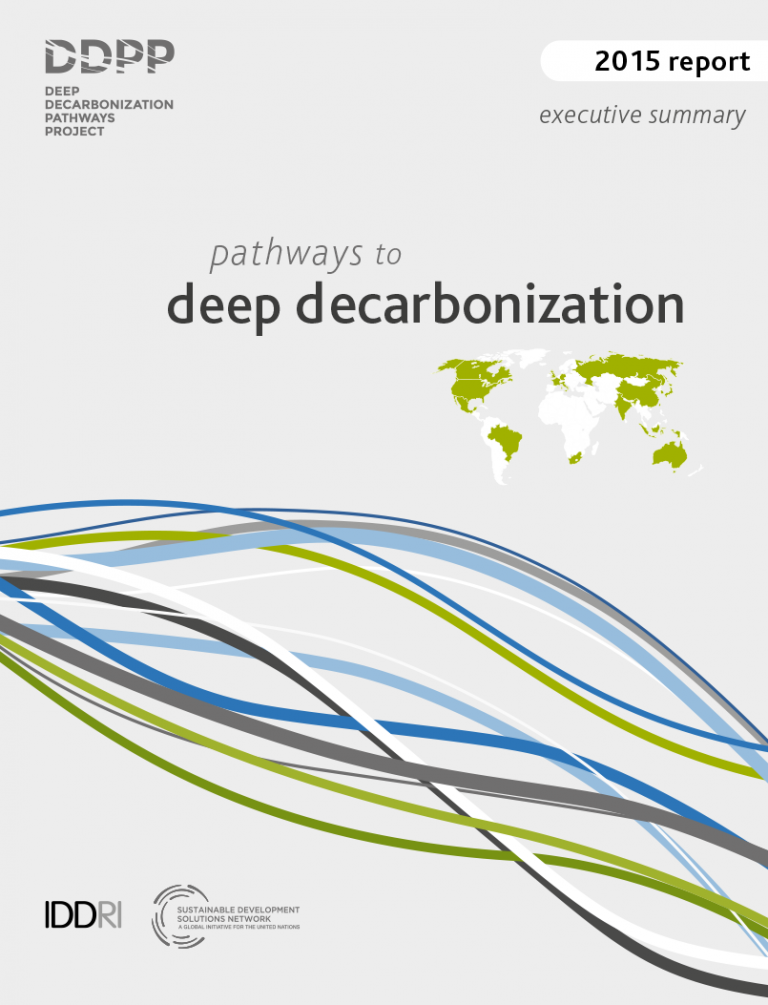
- Australia, Brazil, Canada, China, France, Germany, India, Indonesia, Italy, Japan, Mexico, Russia, South Africa, South Korea, UK, United Kingdom, USA
DDPP – 16 countries – Executive Summary
The Deep Decarbonization Pathways Project (DDPP) is a collaborative global research initiative to understand how individual countries can transition to a low-carbon economy consistent with the internationally agreed goal of limiting anthropogenic warming to less than 2 degrees Celsius (°C). Staying within this limit requires global net emissions of greenhouse gases (GHG) to approach zero in the second half of this century. This will entail, more than any other factor, a profound transformation of energy systems, through steep declines in carbon intensity across all sectors, a transition we call “deep decarbonization”.
EN | FR
- DDPP Consortium
- DDP-Project
- Report
- 2015
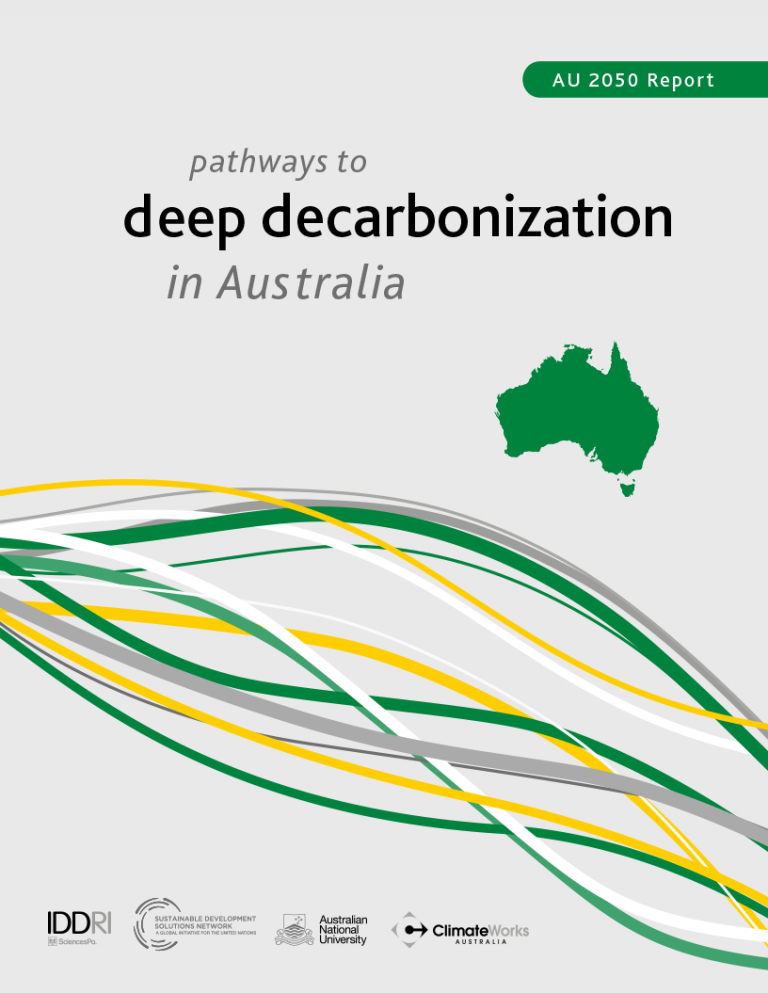
- Australia
DDPP – Pathways to deep decarbonization in Australia
The report presents an illustrative deep decarbonisation pathway for Australia just one of many possible pathways developed using a combination of well-established modelling tools to identify feasible and least-cost options. The frame of reference for the analysis is that all countries decarbonise by 2050, consistent with the objective of limiting the increase in global mean surface temperature to 2C in order to avoid dangerous climate change.
- ClimateWorks Australia
- DDP-Project
- Report
- 2015
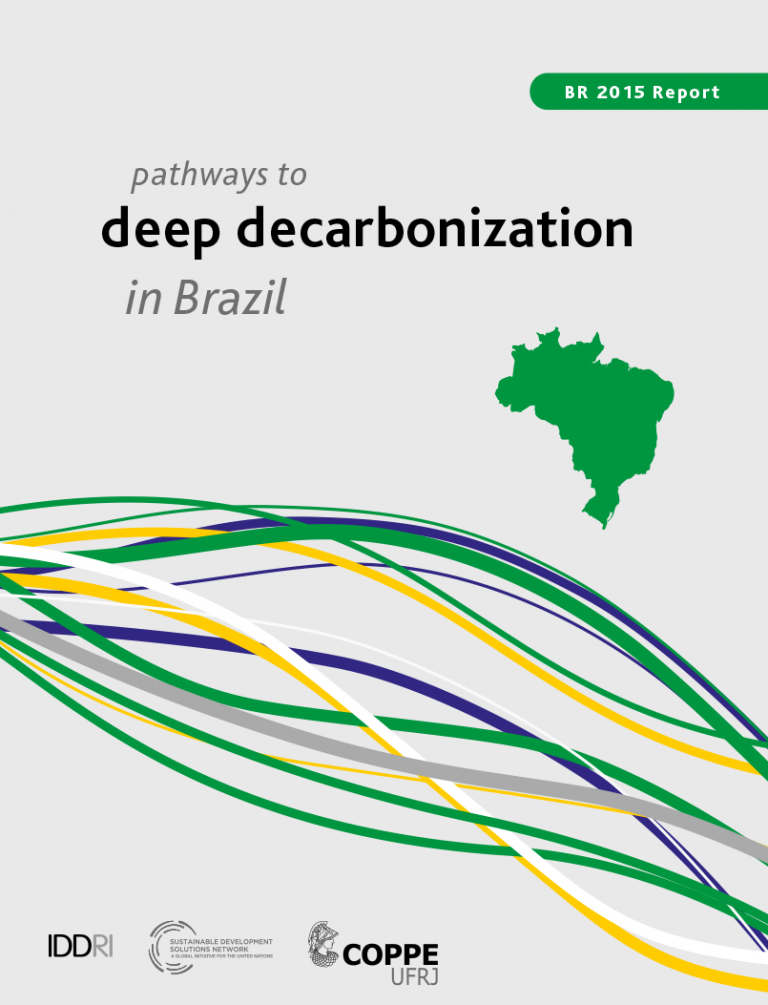
- Brazil
DDPP – Pathways to deep decarbonization in Brazil
Brazil faces the challenge of building upon its historically low energy-related GHG emission levels through new decarbonization strategies, while pursuing higher living standards for its population.
- Emilio Lèbre La Rovere, Claudio Gesteira, Carolina Grottera, William Wills.
- DDP-Project
- Report
- 2015
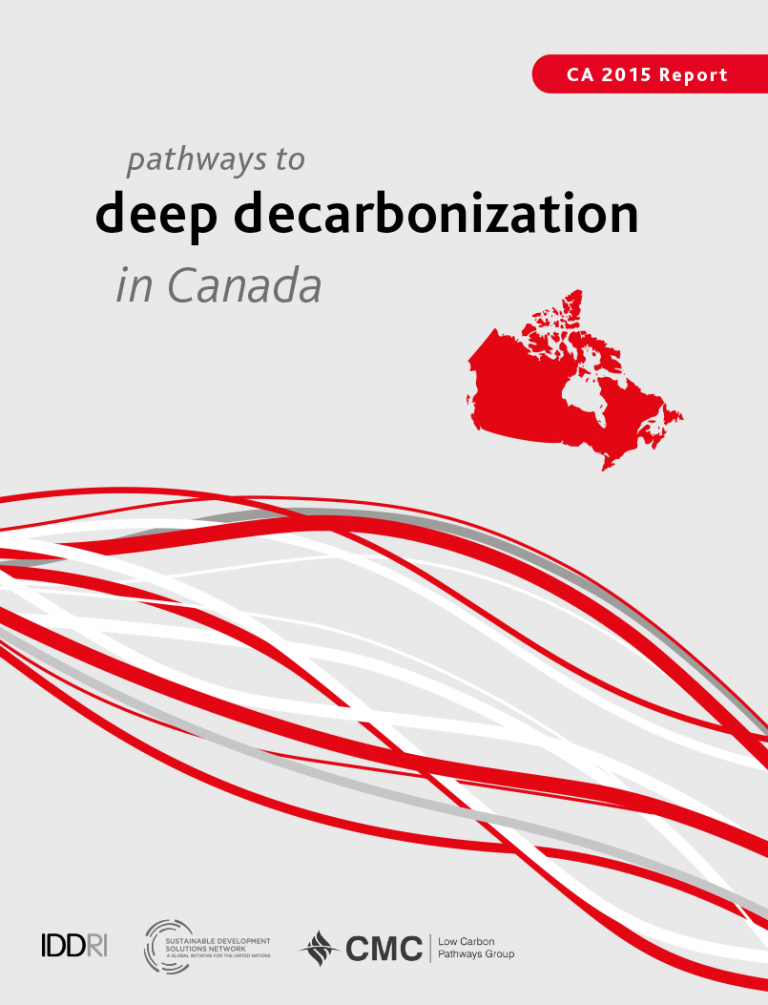
- Canada
DDPP – Pathways to deep decarbonization in Canada
In this second Deep Decarbonization Pathways Project (DDPP) Canada report we look outside of Canada’s borders to identify global decarbonization trends that will affect Canada and our ability to achieve deep decarbonization. We focus on identifying resilient pathways that policy can target regardless of eventual ambition, whether it is tentative, short-term steps or longerterm shifts towards deeper reductions.
- Chris Bataille, David Sawyer, Noel Melton.
- DDP-Project
- Report
- 2015
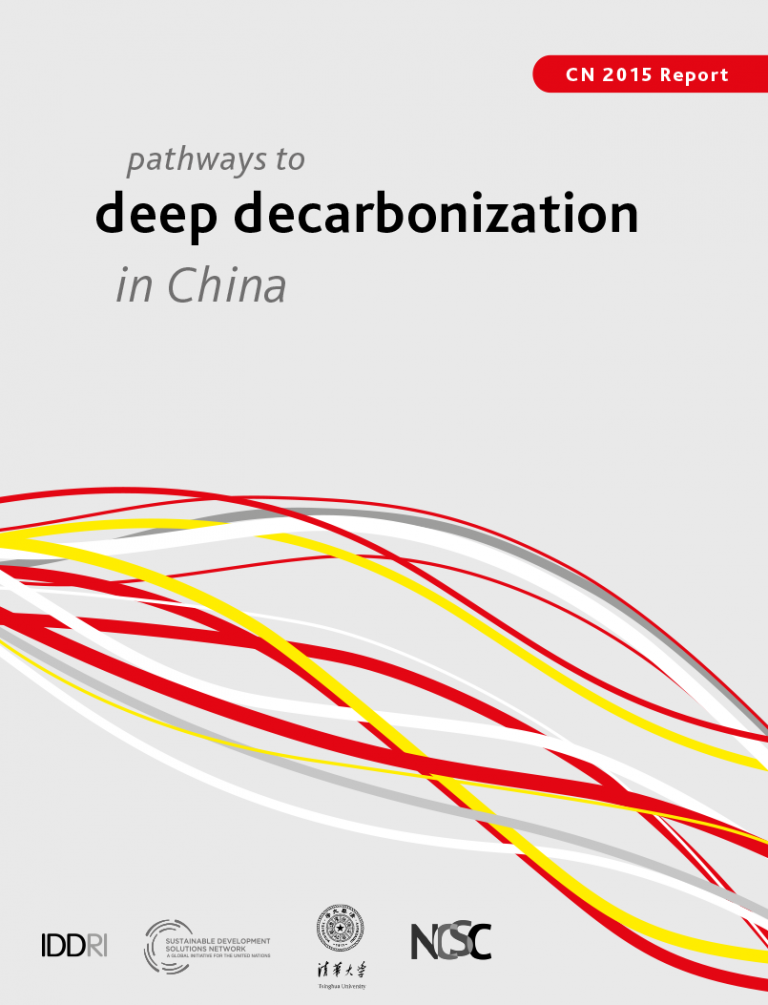
- China
DDPP – Pathways to deep decarbonization in China
This China country report by the country team in the Deep decarbonization pathway project (DDPP) summarize the key findings of the technical pathways
developed by the Chinese team, with a view to achieve deep reduction in the longer term for China.
- NCSC: Qiang LIU, Yi CHEN, Chuan TIAN, Xiaoqi ZHENG Tsinghua: Fei TENG, Alun GU, Xi YANG, Xin WANG
- DDP-Project
- Report
- 2015
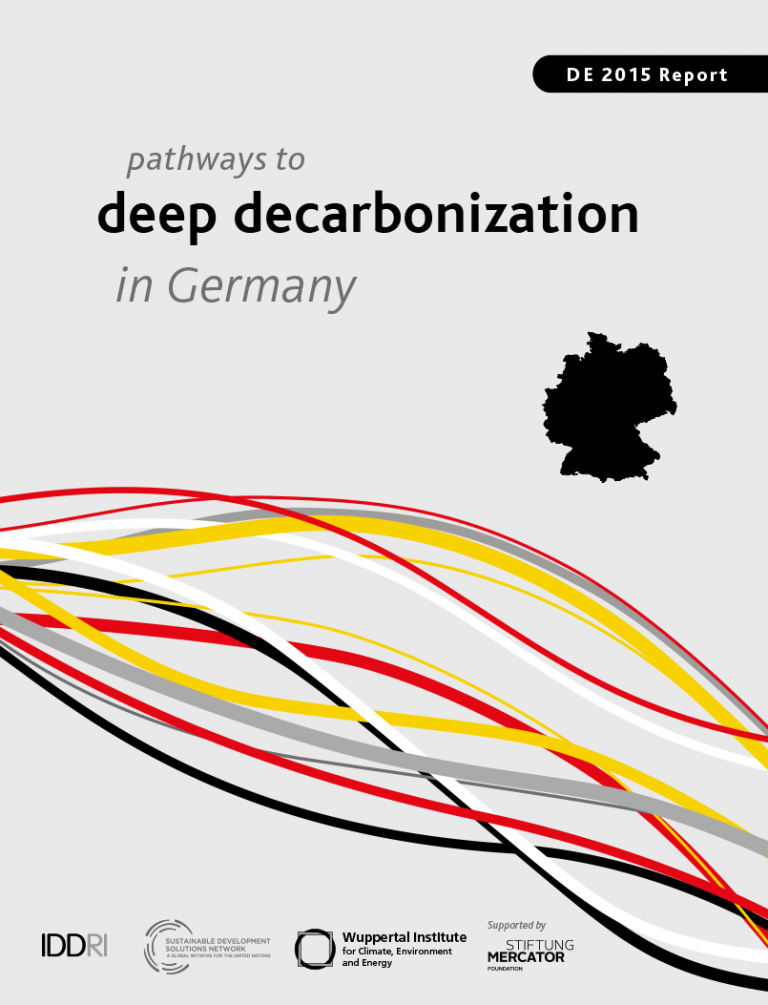
- Germany
DDPP – Pathways to deep decarbonization in Germany
This report explores what is required to achieve deep decarbonization in Germany and reach the German target of reducing domestic GHG emissions by 80% to 95% by 2050 (compared with 1990). Potential decarbonization pathways for Germany are illustrated by means of three ambitious scenarios.
- Katharina Hillebrandt, Sascha Samadi, Manfred Fischedick